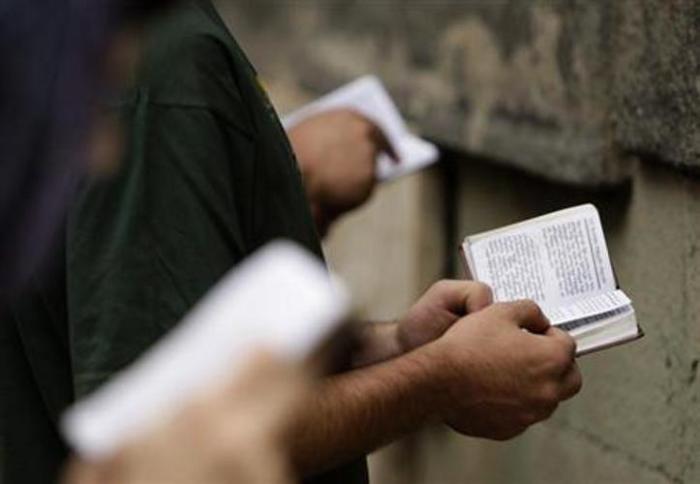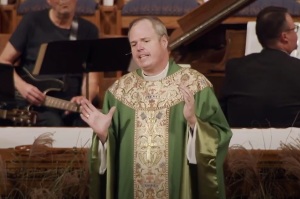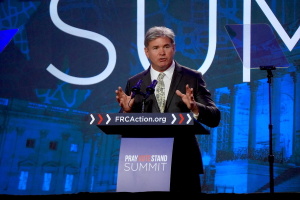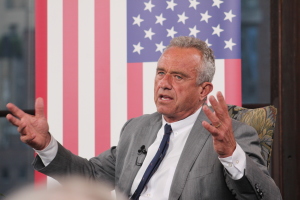Georgia's new ‘foreign agents law’ threatens churches, legal expert warns

The Georgian government has enacted a law that aims to persecute churches, non-governmental organizations and independent media, according to a renowned law professor.
The Foreign Influence Transparency Law, in force since June 3 despite widespread protests, makes churches, NGOs and media enter personal information on a public register if they receive more than a fifth of income from supporters abroad — or face thousands of dollars in fines.
Giorgi Meladze, a law professor at Ilia State University, told rights watchdog Forum 18 that the impact of the law on smaller religious communities stood out as a particular concern.
“It is our belief that the law was specifically designed as an instrument to target ‘others,’ and religious minorities should consider it a threat to their fundamental rights and liberties,” Meladze said.
Forum 18 sought answers from Zaza Vashakmadze, head of the State Agency for Religious Issues, about which religious organizations would be affected by the law, and why the state demanded such detailed information about funding. He did not respond.
Any listed churches, NGOs or media organizations failing to comply face heavy fines of 25,000 lari ($8,945) and have details noted on the register regardless, according to RFE/RL’s Georgian Service. A financial declaration is then needed by the organization or another fine of 10,000 lari ($3,500) is imposed.
The state authority would then check a month later, and further disobedience to comply with the law results in yet another fine of 20,000 lari ($7,150). Fines for the same amount would be levied each month the organization does not give the details required.
Meladze said “consistent suppression” by the government had caused religious groups to be less visible. He called the crackdown a “historical low.”
“With very little visibility in public debate, religious minorities risk losing their rights without this being noticed,” he told Forum 18.
The Georgia government’s haste in adopting the new law has also dented any democratic response by groups concerned, according to Meladze.
“The speed at which the government rushed to adopt the law never gave enough space for wider public discussion and consultation with stakeholders, including religious minority groups,” he told Forum 18. “One can even argue that religious minorities were kept on the margins throughout the process.”
Despite public protests, on May 28, the Georgian Parliament vetoed President Salome Zurabishvili’s refusal to sign the bill, and the chairman of parliament, Shalva Papuashvili signed it into law.
The Georgian Dream Party, dominating the country’s parliament since 2012 and led by businessman Bidzina Ivanishvili, pushed the law through after considering a similar regulation in March 2023. Forum 18 stated that Ivanishvili had promised not to adopt a similar law in the future.
“The promise was broken, and not for the first time,” Meladze commented.
The legal regulation also demands personal information about staff of organizations, including religious views.
Many aspects of the law “remained vague” and dangerously open to interpretation by authorities, Forum 18 said in a press statement. The Rev. Zaal Tkeshelashvili of the Evangelical Church of Georgia, said he feared “the state installing surveillance cameras in every corner to control the religious or private lives of believers.”
Meladze said the legal culture in Georgia needed to be understood to perceive the underlying threat now facing Evangelicals and others under the new law. He listed characteristics such as a “formalistic application of law, wide discretion of the executive, spontaneous and anonymous authorship of the precedent and the discriminatory attitude of policy-making institutions.”
The ambiguity of the law hence created a “toxic mix for human rights protection,” according to Meladze.
Papuashvili defended the law in responding to concerns of Michael O’Flaherty, commissioner for human rights at the Council of Europe. He called the new law “essential, not optional, for increasing transparency.”
On April 16, Papuashvili wrote to O’Flaherty, “Overall, the draft law is compatible with the European human rights standards.” He said a previous, similar draft law had been ditched on the understanding that Georgian and foreign organizations would “open up their funding” and provide requested information.
“We tried to partner with major donor organizations on [a] voluntary basis, but, despite our attempts, the situation worsened,” Papuashvili wrote. “The unfortunate reality in Georgia is that certain non-profit organizations continue to evade transparency requirements and covertly influence political, economic and security processes.”
Archil Metreveli, law professor and head of the Institute for Religious Freedom at the University of Georgia, differed with Papuashvili on the effect upon human rights in the country.
“The initiation and adoption process of this law suggests that the government’s real purpose is not to ensure public ‘transparency’ of the finances of private organizations, including religious organizations, but to exert control,” Metreveli told Forum 18.
The adoption of the law will have an expressly negative impact on human rights in Georgia, including the freedom of religion or belief, he said.
“This effect will be both direct and indirect, and it will be devastating,” Metreveli told Forum 18.
There are similarities between the new law, known as the Foreign Agents Law, with a similar law adopted by Russia in 2012, Forum 18 noted.
Volker Türk, the United Nations High Commissioner for Human Rights, has requested that the Georgian government withdraw the law, underlining that it “poses serious threats to the rights to freedom of expression and association.”
The European Commission for Democracy through Law, commonly known as the Venice Commission and an advisory body to the Council of Europe, has also criticized the new law.
“This law, which is human-rights sensitive but is also highly controversial in Georgian society, as is demonstrated by the massive reactions in the country, was adopted in a procedure which left no space for genuine discussion and meaningful consultation, in open disregard for the concerns of large parts of the Georgian people,” said the commission, according to Forum 18.
The Organization for Security and Cooperation in Europe’s Office for Democratic Institutions and Human Rights (ODIHR), in an “urgent opinion” on May 30, stated the law did “not pursue a legitimate objective as reflected in international human rights instruments, nor attests to a particular necessity, and unduly impacts the right to association and right to privacy, among others.”
This article was originally published by Christian Daily International.
Christian Daily International provides biblical, factual and personal news, stories and perspectives from every region, focusing on religious freedom, holistic mission and other issues relevant for the global Church today.




























